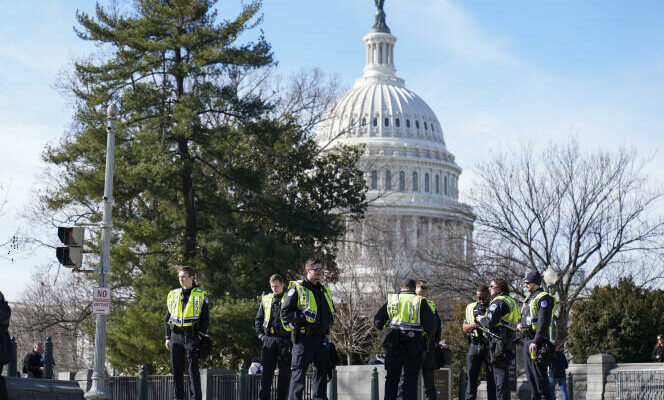Two sentences, 109 words written in 1868, and a lot of ambiguity. This is how it appears section 3 of 14e amendment of the Constitution of the United States, which the Supreme Court examined on Thursday, February 8, in a historic hearing. At the end of the debate, the nine judges will have to decide whether Donald Trump, favorite of the Republican primaries, should be disqualified because of his desire to prevent the peaceful transition of power during the election of Joe Biden in 2020 and his involvement in the assault of January 6, 2021. In truth, the suspense is low. This hypothesis seems unlikely, as the judges expressed strong skepticism in their questions and remarks, even beyond the division between conservatives and liberals.
During the two hours of debate, it clearly appeared that the magistrates were not convinced by the legitimacy of the decision taken by the Colorado Supreme Court, in December, to exclude Donald Trump from the race for the Republican nomination in this state. A week later, Maine’s secretary of state also took this step, while dozens of similar requests across the country were rejected by local authorities.
A large part of the discussions before the Court focused on three points: the content of section 3 of 14e amendment, the prerogatives of a State and the possible consequences of disqualification. On the other hand, the very nature of the events of January 6 was hardly mentioned, apart from a striking exchange between Judge Ketanji Brown Jackson and Donald Trump’s lawyer, Jonathan Mitchell. The latter has gone halfway down a path that his client never wanted to take. “It was a riot. It was not an insurrection. The events were shameful, criminal, violent, all of those things. But they cannot be described as an insurrection in the sense in which that term is used in section 3.”
A vague article
Written following the American Civil War, section 3 of the 14e amendment was intended to prevent the return of former Confederates to positions of responsibility. The text states that a person having taken an oath to support the Constitution “as an officer of the United States” cannot be a member of Congress, serve as an elector, or hold any office, civil or military, if he or she has engaged in an insurrection or rebellion.
Through its imprecise wording, section 3 opens up a vast area of debate. Is the president one officer of the United States among others? Who has the legitimacy to apply this text? And then, does January 6 constitute an insurrection, and in this case, can we agree on the direct responsibility of Donald Trump?
You have 60% of this article left to read. The rest is reserved for subscribers.
